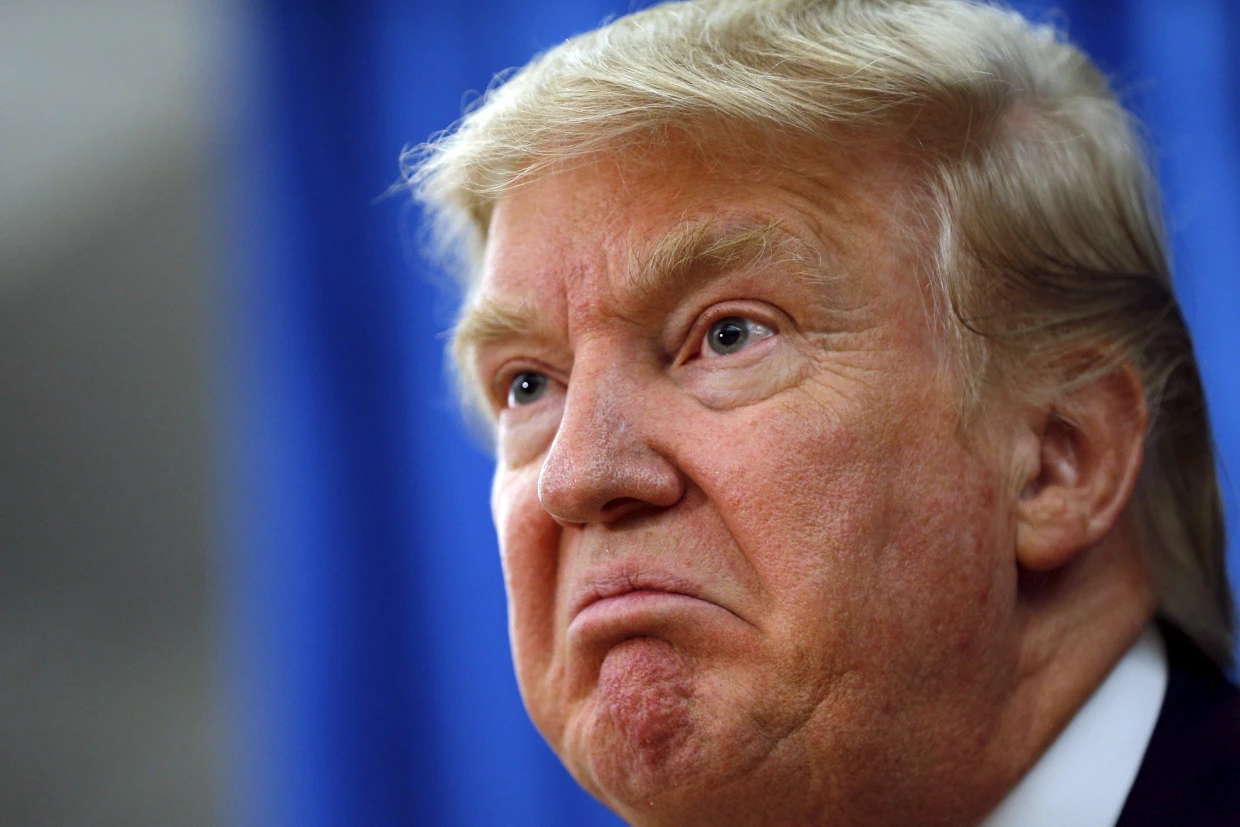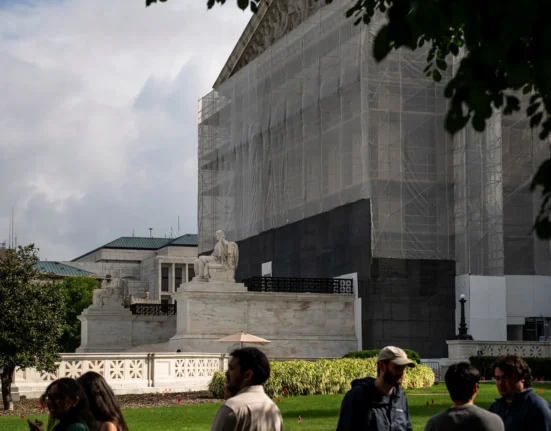Why the Fight Matters
The battle over birthright citizenship is more than a legal dispute; it’s a clash over the soul of American identity. The 14th Amendment was designed to ensure inclusivity, particularly for formerly enslaved people after the Civil War, and its principles have shaped the U.S. as a nation of immigrants. Trump’s attempt to reinterpret this amendment challenges that legacy, raising questions about who belongs in America and what rights they are entitled to.
For supporters, the policy is a bold step to curb illegal immigration and protect the “value” of American citizenship. For opponents, it’s an unconstitutional overreach that threatens the rights of millions and undermines the nation’s commitment to equality. As the Supreme Court prepares to weigh in, the outcome could reshape immigration policy, influence future executive actions, and redefine the boundaries of constitutional authority.
In a highly controversial move
President Donald Trump’s attempt to end automatic birthright citizenship in the United States has met with significant legal and political setbacks, leaving many supporters disappointed and opponents relieved. The executive order, signed on January 20, 2025, aimed to reinterpret the 14th Amendment to deny U.S. citizenship to children born on American soil to parents who are not U.S. citizens or legal permanent residents. However, the policy has faced fierce opposition, with multiple courts issuing injunctions and legal experts calling it “blatantly unconstitutional.” This blog post dives into the details of Trump’s initiative, the legal battles it has sparked, and the broader implications for immigration policy in the United States.
Trump’s Push to End Birthright Citizenship.
Donald Trump has long targeted birthright citizenship as a cornerstone of his immigration policy. During his first presidential campaign in 2015, he called the practice “ridiculous” and claimed it could be ended with an executive order or congressional action. In 2018, he reiterated this stance, telling Axios, “We’re the only country in the world where a person comes in and has a baby, and the baby is essentially a citizen of the United States … with all of those benefits.” This claim is factually incorrect, as more than 30 countries, including Canada, Mexico, and most South American nations, also offer birthright citizenship.
On his first day back in office in 2025, Trump made good on his campaign promise by signing the executive order, which was set to take effect 30 days later. The policy aimed to curb what Trump described as a “magnet” for illegal immigration, including so-called “birth tourism,” where pregnant women travel to the U.S. to give birth and secure citizenship for their children. In a Truth Social post on May 15, 2025, Trump wrote, “Birthright Citizenship was not meant for people taking vacations to become permanent Citizens of the United States of America, and bringing their families with them, all the time laughing at the ‘SUCKERS’ that we are!”
Political and Social Implications
The fight over birthright citizenship has exposed deep divisions in American politics. A recent NPR/Ipsos poll showed declining support among Republicans for ending birthright citizenship, dropping from 56% in February 2025 to 48% in May. Meanwhile, 53% of Americans overall oppose the move, with 79% of Democrats firmly against it. These numbers reflect a broader public debate about immigration, national identity, and constitutional rights.
Critics argue that ending birthright citizenship would create a “permanent underclass” of stateless individuals, particularly affecting children of legal immigrants on temporary visas, such as H-1B holders from countries like India. Approximately 600,000 H-1B visa holders reside in the U.S., and their U.S.-born children could face uncertain legal status under Trump’s policy. For example, Indian families stuck in decades-long green card backlogs—some waiting up to 54 years due to per-country caps—could see their children born in the U.S. denied citizenship, potentially inheriting their parents’ precarious immigration status.
Immigrant rights groups warn that the policy could disrupt communities and economies, with Julia Gelatt of the Migration Policy Institute noting, “Children of immigrants have had that sense of belonging and full rights in the United States that they’ve been able to harness to really support their integration.” Denying citizenship could also lead to logistical challenges, as U.S. birth certificates do not currently record parental citizenship status, making enforcement difficult.
What is Birthright Citizenship?
Birthright citizenship, also known as jus soli (right of soil), is a constitutional right enshrined in the 14th Amendment, ratified in 1868. The amendment states, “All persons born or naturalized in the United States, and subject to the jurisdiction thereof, are citizens of the United States and of the State wherein they reside.” For over 125 years, this clause has been interpreted to grant automatic citizenship to nearly all individuals born on U.S. soil, regardless of their parents’ immigration status. The landmark 1898 Supreme Court case United States v. Wong Kim Ark solidified this interpretation, affirming that children born to noncitizen parents, including those without legal status, are U.S. citizens.
President Trump’s executive order sought to challenge this precedent by directing federal agencies to stop recognizing automatic citizenship for children born to undocumented immigrants or those on temporary visas, such as H-1B, student, or tourist visas. The order, titled “Protecting the Meaning and Value of American Citizenship,” argued that the phrase “subject to the jurisdiction thereof” excludes those without legal permanent status. However, legal scholars and immigration advocates have strongly contested this reinterpretation, asserting that it contradicts established constitutional law.
Legal Setbacks and Court Challenges.
The executive order quickly sparked a wave of lawsuits from more than 20 states, immigrant advocacy groups, and individuals, including pregnant women whose children would be affected. Courts in Massachusetts, Maryland, Washington, and New Hampshire issued preliminary injunctions to block the order, with judges like John C. Coughenour calling it “blatantly unconstitutional.” By February 23, 2025, Trump had lost all four preliminary rulings in at least 10 court cases challenging the policy.
The legal debate centers on the 14th Amendment’s jurisdiction clause. Trump’s administration and some conservative scholars argue that undocumented immigrants or those on temporary visas are not fully “subject to the jurisdiction” of the U.S. because they lack legal allegiance or permission to reside in the country. However, courts have consistently upheld the Wong Kim Ark precedent, which applies to children of noncitizens, including undocumented immigrants, as long as they are subject to U.S. law. Beatriz Lopez, co-executive director of the Immigration Hub, stated, “Birthright citizenship has been settled law for over 125 years. This case isn’t just about legal interpretation—it’s about whether our country becomes one that denies children their rights based on who their parents are. That’s not just unconstitutional. It’s authoritarian.”
The Justice Department has expedited appeals, but the 9th Circuit Court of Appeals refused to stay a lower court’s ruling, emphasizing the need for reasoned judgment. Legal experts, including University of Richmond professor Carl Tobias, suggest the Supreme Court may decline to hear the case due to the clarity of existing precedent, though the issue remains on track for a potential high court showdown expected in late June or early July 2025.
A Strategic Move Beyond Citizenship
Interestingly, Trump’s legal strategy in this case may extend beyond birthright citizenship itself. The Justice Department has focused its Supreme Court arguments on challenging the power of lower courts to issue nationwide injunctions, which have repeatedly blocked Trump’s policies. A ruling limiting these injunctions could allow the administration to pursue its agenda more effectively, even if the birthright citizenship order is ultimately struck down. Trump has expressed frustration with these “universal injunctions,” writing on Truth Social in March 2025, “Unlawful Nationwide Injunctions by Radical Left Judges could very well lead to the destruction of our Country!”
President Donald Trump’s
Fight to end automatic birthright citizenship has hit significant roadblocks, leaving his administration and supporters disappointed but undeterred. With multiple court losses and a likely Supreme Court battle looming, the issue remains a flashpoint in the ongoing immigration debate. Whether you view the policy as a necessary reform or an attack on constitutional principles, one thing is clear: the fight over birthright citizenship is far from over, and its resolution will have profound implications for the future of the United States.
Stay tuned to BigEntertainmentNews.com for the latest updates on this developing story and other major political and cultural events shaping our world.













Leave feedback about this